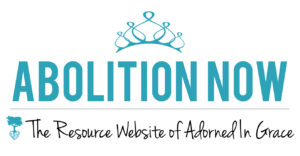
Relationships help us frame our lives, give us purpose and identity, affirmation and affection; and sustain us in times of trauma, change, and chaos. They are the glue that holds us together. Relationships were designed by God be life-giving, nurturing, loving, and encouraging. Yet why is it some relationships create heartache, havoc, and pain? Ties that bind can really hurt.
Understanding the Role of Relationship Dependency in Exploitation
The answer: alone.
Relationships help us frame our lives, give us purpose and identity, affirmation and affection; and sustain us in times of trauma, change, and chaos. They are the glue that holds us together. Relationships were designed by God be life-giving, nurturing, loving, and encouraging. Yet why is it some relationships create heartache, havoc, and pain? Ties that bind can really hurt.
A Hidden Epidemic
On the surface, relationships appear to be about other people. But in reality any relationship we have with another person reveals a lot about how we feel about ourselves. “Relationship dependency” has been called a hidden epidemic by mental health professionals. It happens when a person becomes dependent on relationships to function in life. It has been well documented that abuse, particularly childhood sexual abuse, often sets one up to be relationship dependent, and often leads to exploitation.
Sherry Ann wrote, “I can’t stop myself from going back to him, even though all I get is rejection and put downs. He reels me in with false promises that he’ll be there for me if I just shape up. Once he’s ‘got’ me, he criticizes me and I start to feel worthless and want to pull away. But after a few short hours away from him I start to panic and frantically start phoning or texting him. It’s like he’s my life line. But it’s a life line to hell. I feel like I’m possessed.”
For other women, they “settle” and stay with a man, because he’s a man, and “you don’t know when another might come along.” This is a survival mechanism. Relationship dependence doesn’t only happen in romantic relationships. It happens in families, the church, business, and in friendships. It can happen between a mentor and mentee. This is a very real issue, yet many haven’t heard of it or don’t understand it.
In the sex trafficking arena, victims are put through a process of being recruited, groomed, intimidated, controlled, abused, and then turned out by fierce pimps. In the “wooing” phase the pimp, or trafficker, uses his gift at exploiting the victim’s vulnerability by appearing to be a young woman’s savior, thereby fostering dependence. She believes she can trust and have a meaningful love relationship with him.
Fear is the fuel: fear of being alone, abandoned, rejected, feeling insignificant and insecure. Once a bond is forged, then the pimp’s strategy of control and manipulation is intimidation through various forms of abuse. The result is often a “trauma bond” between victim and pimp (equated to Stockholm syndrome). The victim becomes dependent upon the system of prostitution itself; the system of manipulation.
Soul Stuffers
The Bible tells us at birth humans are separated from God. Whether we realize it or not, deep inside every person feels “something” is missing. This is why humans report feeling empty, a longing, and “a hole in the soul.” They sense something is missing, but don’t know what it is. At some point in their lives these sensitive souls stumble across an object which makes them feel better—a soul stuffer. Many females, including my past self, believe a love relationship will fill the hole. What we don’t know is what we’re really longing for is our Creator, God Almighty.
Our need to be filled up is God-given because God created us to be overfilled by Him. We are designed to hold Him as the object of our deepest affections. When we don’t, a hole in our soul is exposed. We can’t stand for the hole to be empty so we stuff it with all sorts of things which become the lord of our lives. Yet we are never satisfied because only God can fill us sufficiently.
There are consequences to choosing not to seek a relationship with God. When we center our lives on anything but Him, the anything becomes an enslaving dependence because we have to have it to feel satisfied.
For decades I was relationship dependent and didn’t even know it, filling my soul hole with man after man. I can hardly wait to see him tonight! He’s so perfect—everything I want in a man! Things would start out great but inevitably the relationship disintegrated; the gaping hole in my soul exposed. Living in a fantasy world, I’d never see it coming; never saw the signs because it seemed “normal.” I just need to try harder to please him.
Overwhelmed by stresses of daily living, the only way to survive was to attach to someone else, thereby creating overblown hopes and expectations. Another dead-end love affair. I’d briefly retreat to that place of emotional pain and isolation. I’d deny my angst and promptly begin a new search for the one perfect man who’d love and take care of me. I deserve to be cared about … to be loved!
Relationship dependency is hard to kick because intense passionate love uses the same system of the brain that gets activated when a person becomes addicted to drugs. The neurochemical dopamine is released triggering the brain’s reward center. Contrarily, being out of relationship triggers feelings of depression, anxiety, and irritability. There usually comes a time when the euphoria wears off, because the body’s ability to keep producing heightened levels of dopamine is compromised. Emotional pain is heightened which creates the need for further relief. (1)
What do most relationship dependent people have in common? I believe the top five are:
- Feel unloved; do not know how to love and be loved.
- Repeatedly rejected or abandoned in childhood, thus starved for affirmation and plagued by insecurity.
- From a home afflicted by addiction and substance abuse, violence, and/or neglect.
- Victim of sexual, physical and/or psychological abuse, thereby, attracted to abusive or emotionally dysfunctional father figures.
- Do not know how much they are loved by their heavenly Father.
From a spiritual viewpoint, relationship dependency can be called “idolatry.” When any person diverts our attention away from God and onto that relationship, it is idolatry. Whether we realize it or not we are breaking God’s second commandment: “You shall have no other gods before me” (Exodus 20:3). One of God’s names is Jealous (Exodus 34:14). There is a living God. He cares and loves every one of His created. And He desires to be the number one relationship in our lives.
The Way of Love
Hope for the relationship dependent person begins with a spiritual awakening; an awareness of just how much God loves them. Like a lover, God calls and woos us into a deep relationship with Him. He nudges, winks, and whispers. He paints pictures and writes poems. He doesn’t care what how far we have fallen or the horrible things we have done. His love and forgiveness covers our sins. Nowhere in all of this does God force us, push us, or drive us to do what He wants. This is not the way of true love. Love invites us, calls us, and woos us.
The Bible says, “And so we know and rely on the love God has for us. God is love. Whoever lives in love lives in God, and God in them. … There is no fear in love. But perfectlove drives out fear, because fear has to do with punishment…” (1 John 4:16; 18).
God is love.
Like so many of my female counterparts, I had been “looking for love in all the wrong places.” There was a kind of love that couldn’t be found prowling the bars or on Match.com. True love is found in the Person of Jesus Christ, the Son of the one and only living God. And His love is real, enduring, and pure. For trafficking victims, His unconditional love is a lifeline.
When a victim’s heart finally receives God’s love, the hole in their souls begins to fill up. In time, the victim can begin to believe in a loving Father who created them in His image and with attributes of Himself. I see the truth. I’m a daughter of the King Jesus! There is something good about me! Then they have the ability to stand up to the fearful voice of dependency that says, “I’m destined to be abandoned. I’ll be rejected and unloved.” Instead, they replace it with God’s voice, “Never will I leave you. You are lovable and priceless to me” (Hebrews 13:5; Isaiah 54:11-12; Matthew 13:45).
When we begin to let the perfect love of God fill us up, we can begin moving from unhealthy relationship dependency to healthy God-dependency. When our commitment to God, no matter how miniscule it may start, supersedes every relationship, then the outpouring of His love and grace changes the dynamics of each relationship because He helps us to become interdependent. The word “interdependent” means to “depend on others” in a healthy way.
Proverbs 3:6 states, “In everything you do, put God first, and he will direct you and crown your efforts with success” (TLB). Being God-centered is the way to live the abundant healthy life, and the way to prevent relationship dependency.
(1) Drs. Gregory Jantz and Tim Clinton, Don’t Call It Love, (Grand Rapids: Revell Publishing, 2014), 133.

